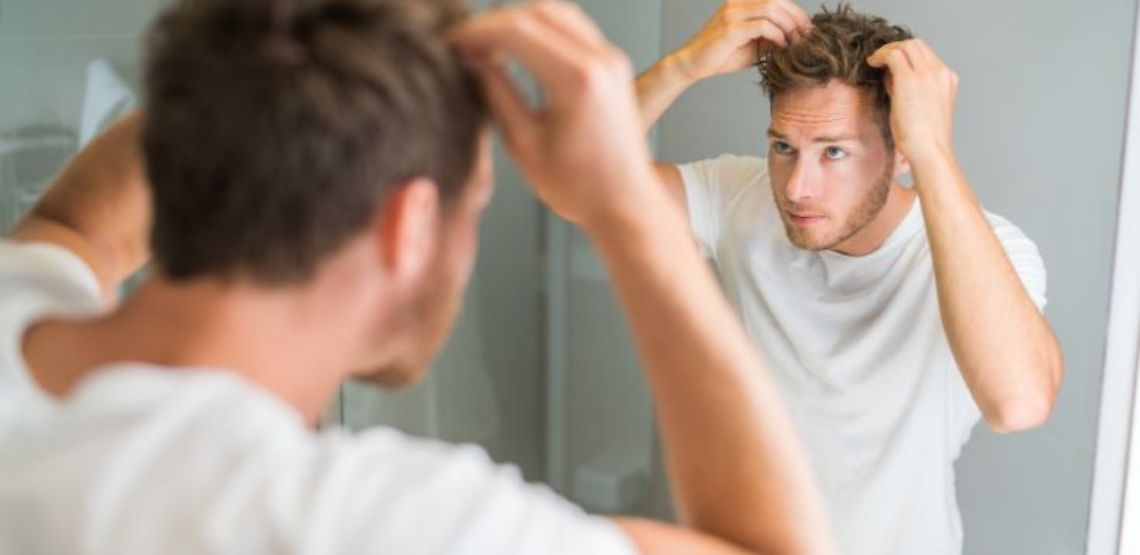What to Eliminate from Your Diet
We all desire luscious and voluminous hair, as it enhances our overall appearance. However, sometimes we unknowingly sabotage our hair health by consuming foods that can contribute to hair loss. While genetics and certain medical conditions play a significant role in hair loss, our diet can also profoundly impact our hair's health. But, there's a treatment option, LITFULO. The first and only treatment for severe alopecia areata, a rare medical condition characterized by hair loss.
10 Worst Foods for Hair Loss
1. Sugar and Sweets
Excessive consumption of sugar and sugary treats can lead to inflammation in the body, which can disrupt the hair growth cycle. It is best to limit the intake of sugary foods such as candies, cookies and beverages for your hair and overall health.
2. Processed Foods
Processed foods are often packed with unhealthy fats, additives and preservatives. These ingredients can contribute to poor hair health. Replace processed foods with fresh, whole foods like fruits, vegetables and lean proteins to promote healthier hair.
3. High-Mercury Fish
Certain fish, such as king mackerel, swordfish and tuna, are known to have high mercury levels. Excessive mercury consumption can lead to hair loss. Opt for low-mercury fish options like salmon, sardines and trout, which are rich in the omega-3 fatty acids that promote hair health.
4. Trans Fats
Trans fats are found in fried and processed foods, including fast food items and commercially baked goods. Some examples of those foods are cheese sandwiches, burgers, pizzas and other items like these. These fats can lead to inflammation and may contribute to hair loss. Choose healthier fat sources like avocados, nuts and seeds instead.
5. Alcohol
Excessive alcohol consumption can dehydrate the body, including the hair follicles, making them brittle and prone to breakage. Limit your alcohol intake and ensure you drink plenty of water to maintain hydration.
6. Caffeine
While moderate caffeine consumption is generally safe, excessive intake can lead to dehydration, which can impact the health of your hair. Drink water alongside caffeinated beverages to counteract the dehydrating effects.
7. High-Glycemic Index Foods
Foods with a high glycemic index, such as white bread, white rice and sugary cereals, can cause blood sugar spikes. These spikes can lead to inflammation and may disrupt the hair growth cycle. Opt for whole grains and complex carbohydrates instead.
8. Artificial Sweeteners
Artificial sweeteners like aspartame and sucralose are commonly found in diet sodas, low-calorie snacks and sugar-free products. They can trigger inflammation and potentially contribute to hair loss. Choose natural sweeteners like stevia or opt for small amounts of natural sugar instead.
9. Dairy Products
Some individuals may experience hair loss due to dairy sensitivities or hormonal imbalances triggered by dairy consumption. If you suspect dairy might be affecting your hair health, consider reducing or eliminating it from your diet to see if it makes a difference.
10. High-Sodium Foods
Excess sodium can lead to water retention and dehydration, which can impact hair health. Minimize your intake of processed and packaged foods that are often high in sodium, and opt for fresh, whole foods seasoned with herbs and spices.
Tips for Better Hair
In addition to avoiding these hair-damaging foods, there are several other steps you can take to improve the health of your hair.
1. Consume a Balanced Diet
Focus on a well-rounded diet rich in fruits, vegetables, lean proteins and healthy fats. These nutrients provide the building blocks for strong and vibrant hair.
2. Stay Hydrated
Drink plenty of water to keep your body and hair hydrated. Dehydration can lead to dry and brittle hair, making it more susceptible to breakage.
3. Take Nutritional Supplements
Consider incorporating hair growth supplements into your routine. Brands like Viviscal offer supplements that contain key nutrients, such as biotin, iron, vitamin C and marine extracts, which can support hair health.
4. Practice Gentle Hair Care
Avoid harsh chemical treatments and excessive heat styling, as they can damage the hair shaft and lead to hair loss. Opt for gentle hair care practices and use heat styling tools sparingly. Wet Brush is a popular brand that designs hair brushes that detangle wet or dry hair with ease, reducing breakage. With its unique IntelliFlex bristles, these brushes are designed to be flexible and bendable, allowing them to glide through knots and tangles effortlessly.
5. Manage Stress
Stress can contribute to hair loss, so it is crucial to find healthy ways to manage stress levels. Engage in activities like exercise, meditation or hobbies to promote overall well-being.
LITFULO for Alopecia Areata
Did you know that LITFULO is the first and only treatment for severe alopecia areata? Alopecia areata is an autoimmune disease distinguished by patchy or complete hair loss on the scalp, face or body. LITFULO is a once-daily oral treatment that helps with hair growth.
Final Notes
Being mindful of the foods we consume can positively impact the health of our hair. Remember, small changes in your diet and lifestyle can make a big difference in the long run. While diet plays a significant role in hair health, it is important to note that individual results may vary. If you are experiencing significant hair loss or have concerns about your hair health, it is best to consult with a healthcare professional or a dermatologist.
